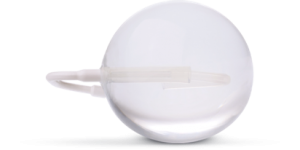Steroids weight gain is managed by initially understanding what steroids are. Often referred to as “steroids,” corticosteroids are a class of medications noted for their potent anti-inflammatory properties. By reducing immune system activity, corticosteroids have anti-inflammatory effects. For this reason, steroids are used to treat a wide range of illnesses, including autoimmune diseases like lupus and rheumatoid arthritis, inflammatory bowel diseases like ulcerative colitis and arthritis, asthma, allergies, and eczema. Steroids are unquestionably helpful, but they can also have several unwanted side effects, including steroids weight gain.
Understanding How Steroids Work
Common steroid medications include cortisone, hydrocortisone, and prednisone, which are synthetic versions of the body’s natural hormone cortisol. This cortisol reduces inflammation as steroids suppress the immune system and alter the body’s natural chemistry. During this process, they change the electrolyte and water balance and alter how the body uses and stores carbohydrates, proteins, glucose, and fat. These alterations can lead to fluid retention, increased fat deposits in the neck, face, and abdomen, and an increased appetite.
Corticosteroids are administered in different ways depending on the condition being treated. These include:
- By mouth.
- By inhaler and intranasal spray.
- Through eyedrops.
- Topically.
- By injection.

Prednisone
Prednisone is a synthetic steroid that helps with numerous roles in the body. It’s a commonly prescribed steroid that lowers inflammation and suppresses the immune system. It can manage conditions such as asthma, allergic reactions, inflammatory bowel disease (IBD), autoimmune diseases, and diseases of the stomach, lungs, kidneys, and eyes.
The unwanted side effect of prednisone is that it exhibits steriods side effects on weight gain. It affects your metabolism, appetite, and fat distribution. This steroid also increases your hunger due to its influence on appetite-regulating hormones and metabolic processes. Other side effects of prednisone include trouble sleeping, mood swings, headaches, and acne. It can also cause cataracts in the long term.
How Steroids Weight Gain Occurs
Steroids side effects on weight gain can occur as steroids can alter the body’s electrolyte and water balances and metabolism, for instance, how it uses and stores lipids, amino acids, proteins, carbohydrates, and glucose. They increase your weight by causing you to have fluid retention, increased appetite, and changes in fat distribution.
Factors Influencing Steriods Side Effects on Weight Gain
- High intakes of steroids cause steroid weight gain. The dosage is the most essential factor in steroid-related weight gain.
- Usage duration as long-term use of steroids leads to increased weight gain.
- Sleep habits and diet also cause such weight gain.
- Body’s response to medications as some people can experience more weight gain than other people.
Side effects of steroids
Corticosteroids’ side effects depend on your dosage and how long you have taken them. These side effects include:
- Weight gain.
- Increased appetite.
- Stomach pains and indigestion.
- Sleep problems.
- Mood changes.
- Skin thinning.
- Stretchmarks.
The Influence of Steroids on your Body's Metabolism
Steroids influence metabolic processes when introduced into the body. They stimulate the appetite, which leads to an increase in food intake. It also slows down the metabolism, which results in weight gain as the body retains water and salt, which causes fluid retention and bloating. They also affect the distribution of fat in the body, which leads to a high concentration of fat in different parts. You can experience weight gain due to taking steroids long-term, even as early as six months into taking them.
How Steroids Stimulate Your Appetite
Steroids affect the hypothalamus, the part of the brain that controls hunger and satiety. It stimulates it to increase hunger signals that cause individuals to consume more food than they are used to eating. Steroids can increase abdominal fat and decrease peripheral fat, which changes your body shape to the Cushingoid appearance.
How to Prevent Steroid-induced Weight gain
You can consult with your doctor and consider the drug you’re taking to see if you have other medication options. You can also get a recommendation of different dosing schedules that can reduce the effects the steroids have on your body. You should always take your medication and don’t change it without medical guidance. Stopping a steroid abruptly can cause serious health complications such as muscle stiffness, joint pain, and fever. You can also use other weight loss strategies such as maintaining a low-calorie diet, eating foods high in protein and fibre, drinking water, and exercising regularly.

Managing Steriods Side Effects on Weight Gain
At Spatz we know that you can manage steroids weight gain if you choose the proper medication and maintain your lifestyle choices. They can have unwanted side effects despite their practicality in the medical industry. Make attempts to prevent weight gain as you use steroids.


